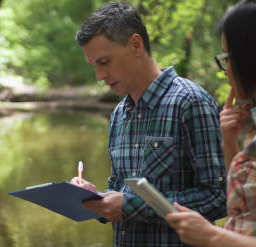Coping with eco-anxiety, or the pervasive worry about the future of the planet due to climate change, involves managing emotional responses while taking constructive actions. Below are strategies for addressing eco-anxiety at personal, community, and societal levels:
1. Acknowledge Your Feelings
-
Validate Your Emotions: Understand that eco-anxiety is a rational response to real environmental challenges. Accepting your feelings without judgment is the first step toward managing them.
-
Seek Support: Share your thoughts and concerns with friends, family, or a therapist to feel less isolated.
2. Stay Informed Without Overloading
-
Set Media Boundaries: Limit your consumption of alarming news about climate change. Stay informed, but balance it with stories of environmental progress.
-
Tip: Dedicate specific times to read about climate issues, and avoid overexposure before bed.
-
Focus on Solutions: Seek information about innovations, policies, and initiatives addressing climate change to balance negative news with hope.
3. Take Action
-
Individual Lifestyle Changes: Adopt sustainable practices, such as reducing waste, conserving energy, using public transport, and supporting renewable energy initiatives. Feeling like you're contributing can alleviate helplessness.
-
Join Collective Efforts: Get involved in local or global environmental groups. Collaborating with others fosters a sense of empowerment and community.
-
Example: Participate in tree-planting campaigns, climate advocacy, or beach clean-ups.
4. Build Resilience Through Self-Care
-
Practice Mindfulness and Meditation: Techniques like mindfulness, yoga, or deep breathing exercises can help manage stress and ground you in the present.
-
Maintain Physical Health: Regular exercise, a balanced diet, and sufficient sleep improve overall well-being and help combat anxiety.
-
Time in Nature: Spending time outdoors can reduce stress, increase happiness, and reconnect you with the environment you're working to protect.
5. Focus on What You Can Control
-
Set Realistic Goals: Break down actions into manageable steps. For example, commit to reducing plastic use or participating in one environmental event a month.
-
Avoid Perfectionism: Remember, you don’t need to do everything perfectly to make a difference. Small steps collectively lead to big changes.
6. Educate Yourself and Others
-
Learn About Climate Solutions: Understanding actionable solutions can shift your focus from the problem to progress.
-
Raise Awareness: Share knowledge and encourage others to adopt sustainable practices, fostering a collective sense of purpose.
7. Strengthen Social Connections
-
Find Like-Minded Communities: Engage with groups or organizations where you can share your concerns and work together on solutions.
-
Example: Join local environmental clubs, online forums, or activist organizations.
-
Talk to Loved Ones: Open dialogues about your feelings can reduce isolation and encourage collective understanding.

8. Seek Professional Help
-
Therapy and Counseling: Work with a therapist, especially one familiar with eco-anxiety, to process your emotions and develop coping mechanisms.
-
Example: Cognitive-behavioral therapy (CBT) can help manage negative thought patterns and promote constructive action.
-
Support Groups: Join eco-anxiety-specific support networks where you can connect with others experiencing similar emotions.
9. Advocate for Policy Change
-
Engage Politically: Support policies that address climate change and advocate for systemic change. Voting for environmentally conscious leaders and initiatives can amplify your impact.
-
Communicate with Leaders: Write letters, sign petitions, or meet with policymakers to express your concerns and push for climate action.
10. Practice Gratitude and Celebrate Progress
-
Focus on Positives: Reflect on progress being made in the fight against climate change, such as technological advances, conservation successes, and renewable energy growth.
-
Celebrate Wins: Acknowledge and celebrate small victories in your own life and in the broader environmental movement.
11. Cultivate Hope
-
Stay Inspired: Read stories or watch documentaries about individuals and communities making a difference in combating climate change.
-
Example: Follow leaders like Greta Thunberg or organizations actively working on climate solutions.
-
Focus on Long-Term Goals: Recognize that meaningful change takes time and that collective efforts are making an impact.
12. Accept Uncertainty
-
Embrace the Unknown: Understand that while climate change is a significant challenge, many factors are beyond individual control. Focus on resilience and adaptability.
Conclusion to Coping with Eco-Anxiety
Eco-anxiety reflects a deep care for the planet, and managing it involves balancing emotions with constructive actions. By fostering personal resilience, building supportive communities, and taking meaningful steps toward sustainability, individuals can transform their anxiety into empowerment and hope for a healthier planet.

Bob Batemen is a dedicated contributor to WeatherScientific.com, bringing a wealth of expertise in weather management and environmental science. Bob combines a deep understanding of environmental systems with practical experience in weather forecasting, climate patterns, and the implementation of sustainable weather-related solutions. Over the years, Bob has developed a keen interest in how climate change impacts global weather patterns, disaster risk management, and the mitigation of extreme weather events.
Bob's professional experience spans both private and public sectors, where they have contributed to the development of weather-sensitive infrastructure, environmental policy, and climate adaptation plans.
As a contributor to WeatherScientific.com, Bob shares insightful articles, guides, and analyses on emerging weather trends, cutting-edge weather technologies, and their environmental implications. Their passion for blending science with practical applications continues to shape their work, providing readers with valuable, informed perspectives on the ever-evolving world of weather and environmental management.









Leave a comment